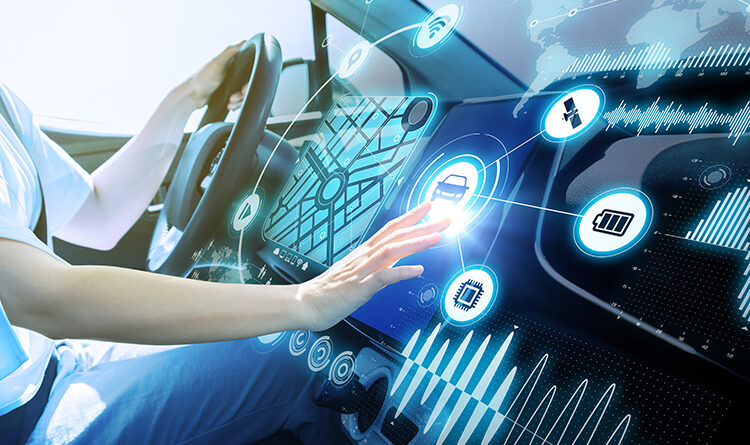Navigating the Future: 5G and IoT are Driving the Connected Car Revolution
“Navigating the Future: How 5G and IoT are Driving the Connected Car Revolution,” where we delve into the exciting world of connected cars and the transformative power of technology in transportation. As we navigate the future, two key drivers, 5G and the Internet of Things (IoT) are propelling us towards a new era of automotive innovation. Through the convergence of these cutting-edge technologies, a connected car revolution is underway, reshaping the way we drive and interact with vehicles. In this article, we will explore the profound impact of 5G and IoT on the automotive industry, uncovering the advancements, opportunities, and challenges that lie ahead. Get ready to embark on a journey where connectivity, efficiency, and innovation intersect to shape the future of transportation.
Rising Interest: The Connected Car Phenomenon
The term “connected car” has piqued curiosity worldwide, with search queries witnessing an astronomical rise of 203% over the past decade. These smart vehicles, powered by cutting-edge digital technologies, communicate with various software systems, assimilate environmental data, and offer unparalleled convenience and seamless connectivity, completely redefining the traditional notions of driving.
Market Growth: The Skyrocketing Appeal of Connected Cars
Connected cars are catching on at an unprecedented rate. Approximately 47.5 million units were sold globally in 2020, with experts forecasting a growth rate of 20% in 2021. These figures reflect the undeniable staying power of these smart vehicles. The global connected car market, valued at $88.42 billion in 2023, is expected to almost double. Reaching a staggering $191.83 billion by 2028. This surge can be attributed to the proliferation of 5G technology.
The 5G Impact: A New Dimension of Connectivity
5G technology, with its promise of unprecedented speed and connectivity, is spreading like wildfire. A Statista report projects a tripling of global 5G smartphone subscriptions by the end of 2021, reinforcing the foundational infrastructure for connected cars. The increased availability and reliability of 5G networks will exponentially boost vehicle connectivity, lending impetus to the connected car revolution.
The Role of IoT: Smart Cars, Smarter Features
The Internet of Things (IoT) further fuels the connected car revolution. By enabling inter-device connections and real-time data streaming, IoT paves the way for a myriad of enhancements in vehicle functionality. These include predictive maintenance alerts, advanced infotainment systems, and automated emergency responses. The inclusion of IoT in connected cars has emerged as a game-changer, pushing the boundaries of what is possible in a car.
Industry Interest: Major Players Enter the Field
Given the colossal potential of the connected car market, it is unsurprising that major tech corporations are venturing into this dynamic sector. The recent partnership between Google and Ford, known as Team Upshift, underscores the strategic significance of connected car technology in charting the future of the automotive and tech industries.
Looking Ahead: The Future of Connected Cars
As the spheres of 5G and IoT continue to mature, they are poised to redefine our relationship with cars. The connected car revolution, propelled by these digital technologies, is steering the automotive industry toward a future of connectivity, innovation, and boundless potential. The connected car revolution isn’t just the next step in automotive technology; it’s a leap into a future of possibilities that is as exciting as it is promising.
Must Read: Ameca: Bridging the Gap Between Humans and Robots with AI
The Benefits of Connected Cars
Connected cars offer an array of benefits that extend beyond convenience. With advanced safety features like collision warnings and lane departure alerts, connected cars are primed to enhance road safety. Vehicle-to-Vehicle (V2V) communication also allows for smoother and more efficient traffic flow, potentially reducing congestion and fuel consumption. Furthermore, the data collected by connected cars can be analyzed to further optimize traffic management systems and road infrastructure.
Overcoming Challenges
Despite the undeniable benefits and significant technological strides, a few challenges exist as the world embraces the connected car revolution. Key among these is cybersecurity. Incorporating IoT and 5G technology exposes vehicles to potential hacking threats, putting personal data and physical safety at risk. Industry players and policymakers must work together to develop robust cybersecurity standards to counter these threats.
Moreover, privacy concerns arise with the amount of data that connected cars can collect and share. Policymakers, in consultation with automotive manufacturers and tech companies, need to establish regulations. In order to protect user data while not stifling innovation.
Future Trends
Soon, connected cars will interact with smart city infrastructure, contributing to a more integrated and efficient urban ecosystem. They can communicate with traffic lights to optimize traffic flow. With parking spots to locate empty spaces, and even with pedestrians’ smartphones to prevent accidents.
Also, the convergence of connected cars with electric vehicles (EVs) and autonomous driving technology is worth noting. This amalgamation could further revolutionize transportation, reducing environmental impact and freeing drivers to engage in other activities while in transit.
Connected cars are also poised to become mobile offices or entertainment centers. Passengers can work, play, or stream media during their commute with high-speed internet access and sophisticated infotainment systems.
Finally, we can expect an increase in Vehicle-as-a-Service (VaaS)! A model that transforms personal vehicles into services that can be shared among multiple users. Combined with connectivity, this can enable more efficient utilization of vehicles, reducing the total number of cars on the road.
As we head towards a future shaped by the connected car revolution, it is crucial for all stakeholders – from manufacturers and tech companies to policymakers and consumers – to engage in shaping this transformation. As exciting as the prospects are, they also come with responsibilities we must collectively navigate.
Popular Recommendation: The Role of Mobile Applications in Remote Work and Collaboration

